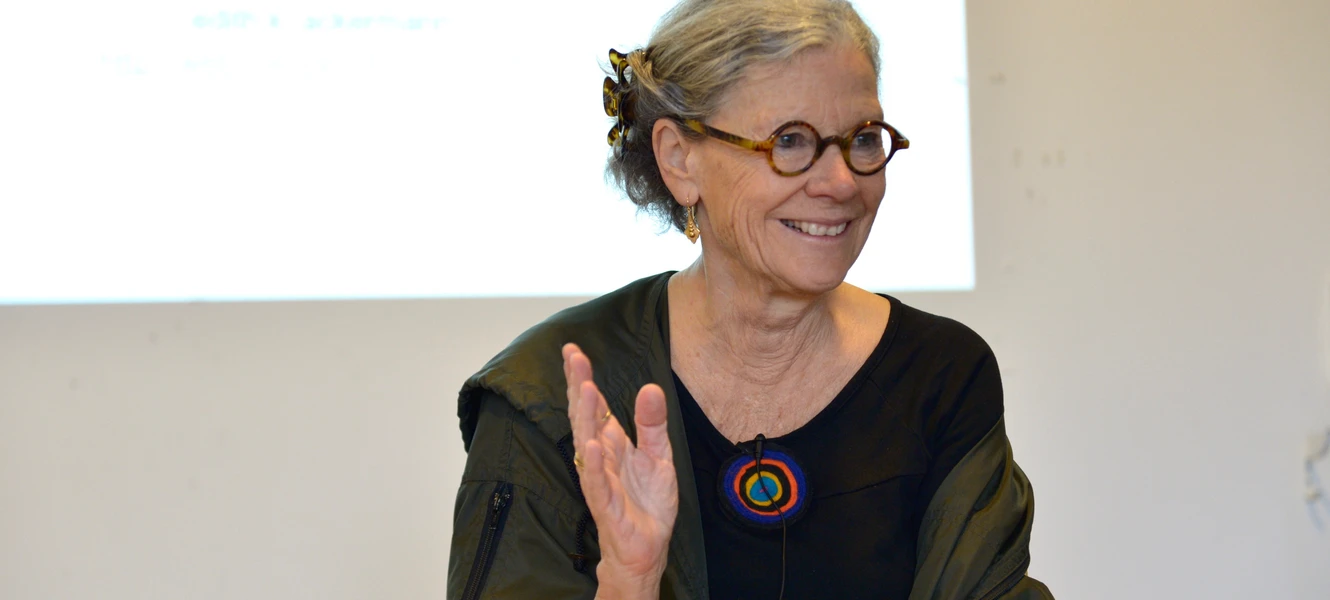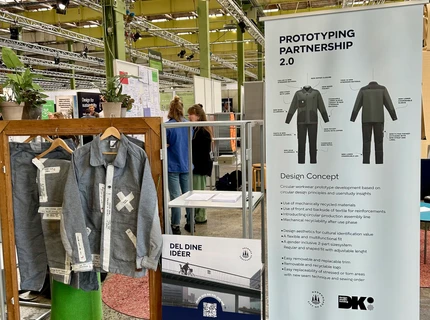
Teacher and student
Edith Ackermann – one of the masters in the field of designing play – came to teach at Design School Kolding, but in her own words, she was also taught. Among other things, she was very interested in the C6 model and the method cards developed by Associate Professors Silje Kamille Friis and Anne Katrine Gelting and by how the methods has been applied in the project Designing Relationships.
Silje Kamille Friis explained the model and the method cards and Prorector Mette Mikkelsen and Designer Joan Pedersen the project Designing Relationships. Edith Ackermann was excited about the space that the cards create for a common language across different fields of the design profession.
Based on the specific experiences with Designing Relationships she especially noticed how the designers, when applying the methods, become able to identify challenges within the organisation which the organisation itself is not aware of.
- And I notice that while working with your findings you are already registering insights and able to translate these into actions, she said.
She also expressed her admiration for the type of design that Designing Relationships represents.
- Neither I personally nor the American design community are used to seeing social design like this, she said.
Edith Ackermann went back to the United States with a set of method cards. Most of the material she received at the school was mailed to her afterwards but the cards she put in her bag.
- I want to make sure I get them with me, she said.
Children know what to do when they don’t know what to do
Edith Ackermann left behind a number of statements about design and play, including this one: “Children know what to do when they don’t know what to do. They experiment, think, prorotype, test, fail and try again when they play. The process is similar to that of the designer.”
She concluded her visit by commending the school’s ability to frame the actual challenge and verbalise it. She also said that and one of the charateristics of the teachers and students is that they must wear special glasses because they seem to be able to see users better than others. She also praised them for their curiosity and experimental approach which brings them unexpected but important insights.
- You have the possibility to go far beyond ”business as usual”, she said.
Collaboration with the LEGO Foundation
Just as Design School Kolding, Edith Ackermann has close ties with LEGO and indeed her visit was organised in collaboration with the LEGO Foundation. Ackermann visited the school to share her vast knowledge and to inspire students, teachers and additional employees who work with design and play. It is a strategic focus area of the school in terms of teaching and research and organised in the school’s Lab for Design and Play, which is headed by Karen Feder.
- Having Edith Ackermann here served as a great inspiration to all of us, and of course we are proud that she feels she also benefitted from the visit, Karen Feder says.
About Edith Ackermann
Edith K. Ackermann is a Honorary Professor of Developmental Psychology, at the University of Aix-Marseille 1, France. Currently a Visiting Scientist at the Massachusetts Institute of Technology, School of Architecture, and a Visiting Professor at the University of Siena, Department of Communication. She teaches graduate students, conducts research, and consults for companies, institutions, and organizations interested in the intersections between learning, teaching, design, and digital technologies.
“Neither I personally nor the American design community are used to seeing social design like this.Edith Ackermann”


